- Find Your College
- Scholarships
- Pay for College
-
Articles
- COLLEGES
- Most Recent
- Affordability & Cost
- College Search
- Comparisons
- College Majors & Minors
- Myths
- News & Trends
- Tips, Tools & Advice
- Admissions
- Most Recent
- ACT & SAT
- College Admissions
- College Applications
- Myths
- Online Colleges
- Questions & Answers
- About
Epidemiology
Select Type of Degree:
Select State:
|
#1

University of Colorado Denver/Anschutz Medical Campus
|
|||||||||||
|
#2
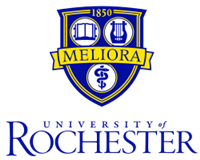
University of Rochester
|
|||||||||||
|
#3

Emory University
|
|||||||||||
|
#4
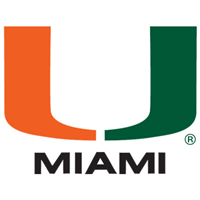
University of Miami
|
|||||||||||
|
#5

Harvard University
|
|||||||||||
|
#6

Columbia University in the City of New York
|
|||||||||||
|
#7

Boston University
|
|||||||||||
|
#8

Yale University
|
|||||||||||
|
#9

Tufts University
|
|||||||||||
|
#10

George Washington University
|
|||||||||||
|
#11

Tulane University of Louisiana
|
|||||||||||
|
#12

Johns Hopkins University
|
|||||||||||
|
#13

University of Michigan-Ann Arbor
|
|||||||||||
|
#14

Texas A&M University-College Station
|
|||||||||||
|
#15

Stanford University
|
|||||||||||
|
#16

University of Pittsburgh-Pittsburgh Campus
|
|||||||||||
|
#17

University of Pennsylvania
|
|||||||||||
|
#18

Drexel University
|
|||||||||||
|
#19
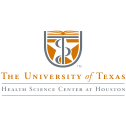
The University of Texas Health Science Center at Houston
|
|||||||||||
|
#20

University of Minnesota Twin Cities
|
|||||||||||
|
#21

University of Washington-Seattle Campus
|
|||||||||||
|
#22

Duke University
|
|||||||||||
|
#23

Georgetown University
|
|||||||||||
|
#24
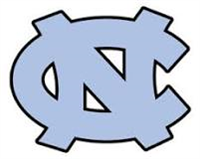
University of North Carolina at Chapel Hill
|
|||||||||||
|
#25

Ohio State University-Main Campus
|
|||||||||||
|
#26

Case Western Reserve University
|
|||||||||||
|
#27

Saint Louis University
|
|||||||||||
|
#28

University of Massachusetts-Amherst
|
|||||||||||
|
#29

University of California-Los Angeles
|
|||||||||||
|
#30

University of Florida
|
|||||||||||
|
#31

University of Wisconsin-Madison
|
|||||||||||
|
#32

University of California-Berkeley
|
|||||||||||
|
#33

University of Iowa
|
|||||||||||
|
#34
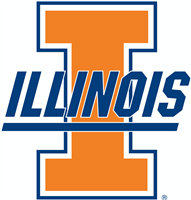
University of Illinois Urbana-Champaign
|
|||||||||||
|
#35

Icahn School of Medicine at Mount Sinai
|
|||||||||||
|
#36

Pennsylvania State University-Main Campus
|
|||||||||||
|
#37

University of Providence
|
|||||||||||
|
#38

University of South Carolina-Columbia
|
|||||||||||
|
#39

Michigan State University
|
|||||||||||
|
#40

University of California-Irvine
|
|||||||||||
|
#41

University of California-Davis
|
|||||||||||
|
#42

University at Buffalo
|
|||||||||||
|
#43

University of Louisville
|
|||||||||||
|
#44

Temple University
|
|||||||||||
|
#45

University of Arizona
|
|||||||||||
|
#46

SUNY at Albany
|
|||||||||||
|
#47

University of Cincinnati-Main Campus
|
|||||||||||
|
#48

Kent State University at Kent
|
|||||||||||
|
#49

West Virginia University
|
|||||||||||
|
#50

The University of Texas Medical Branch at Galveston
|
|||||||||||
|
#51

University of North Texas Health Science Center
|
|||||||||||
|
#52
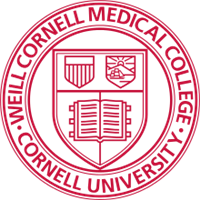
Weill Medical College of Cornell University
|
|||||||||||
|
#53
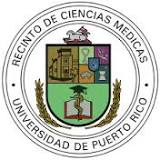
University of Puerto Rico-Medical Sciences
|
|||||||||||
|
#54
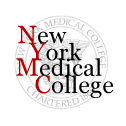
New York Medical College
|
|||||||||||
|
#55

Loma Linda University
|
|||||||||||
|
#56

Medical University of South Carolina
|
|||||||||||
|
#57

University of Maryland- Baltimore
|
|||||||||||
|
#58
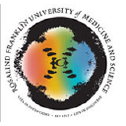
Rosalind Franklin University of Medicine and Science
|
|||||||||||
|
#59

The University of Tennessee Health Science Center
|
|||||||||||
|
*The estimated net prices above are College Raptor’s estimate. Please contact the college financial aid office for actual net cost figures.
|
|||||||||||
About Epidemiology
A program that focuses on the scientific study of disease, disability, and trauma patterns within and across populations and the development of health management mechanisms to prevent and control disease outbreaks and injurious behaviors. Includes instruction in biostatistics, biochemistry, molecular biology, immunology, disease and injury determinants, genetic disease and disability factors, behavioral studies, health services research, environmental disease and injury factors, and population studies.
Massachusetts grants the most Masters degrees in Epidemiology of all US states with 327 degrees being granted last year. Students wanting to major in Epidemiology can expect approximately 75% percent of their classmates to be women and 25% percent of their classmates to be male. The majority students graduating in this field earn a Masters degree. The average starting salary for an undergraduate degree in Epidemiology is $42,090.
Careers
Some top careers related to Epidemiology, include Medical Scientists, Except Epidemiologists and Epidemiologists, both of which have many employment opportunities. Yet there are higher paying careers, such as Health Specialties Teachers, Postsecondary. the most in-demand position for Epidemiology majors is Health Specialties Teachers, Postsecondary.
Top Paying Careers
These are the highest paying careers for Epidemiology majors.
Most In-Demand Careers
These are the careers in highest demand for Epidemiology majors.
Student Demographics




Subscribe to Our Newsletter
Join thousands of students and parents learning about finding the right college, admissions secrets, scholarships, financial aid, and more.

College Raptor, Raptor, InsightFA, FinanceFirst, and “The Right College. The Best Price.” are registered trademarks of College Raptor, Inc.




